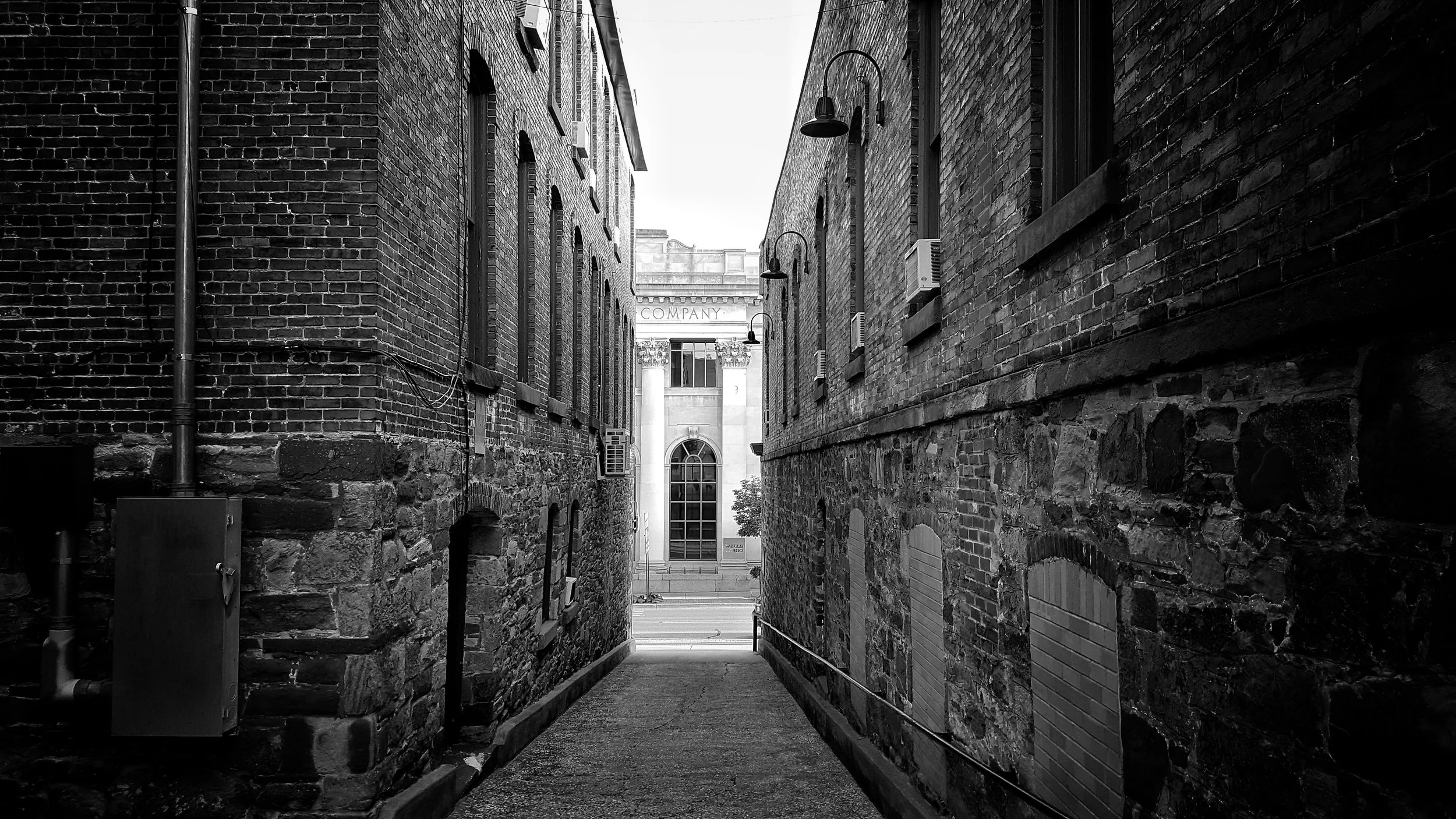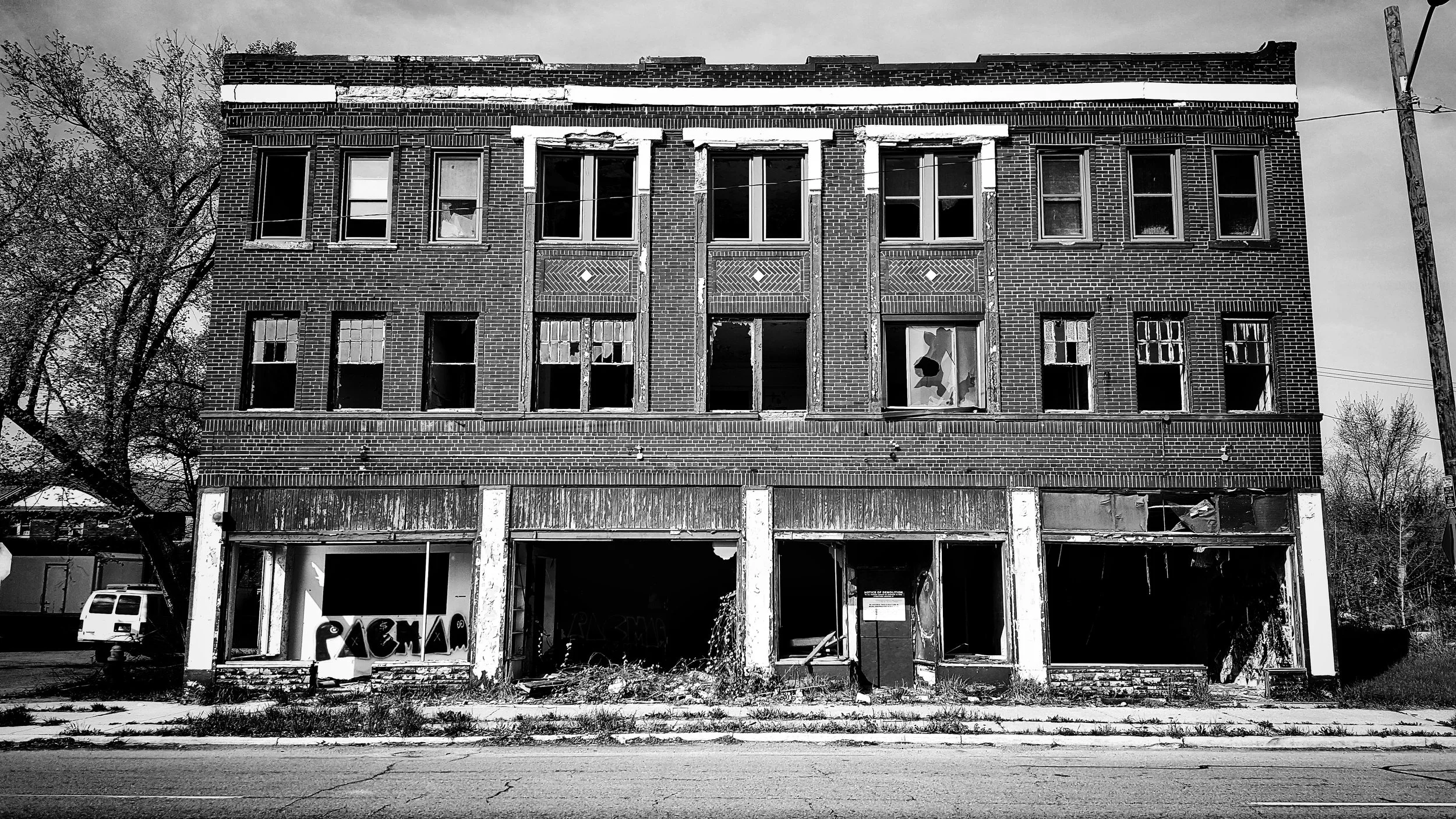bad meme
This thing is all over facebook - appearing in my feed from a number of different sources. Black type on a yellow background and a piece of generic, forgettable clip art. It says this:
“Poverty exists not because we cannot feed the poor, but because we cannot satisfy the rich”
I understand why people are posting, reposting, and sharing it. It’s populist and quotable, with a problem and a villain and a “we” inclusivity that draws all of us in. But like most politically-charged memes, it falls apart when I take a closer look.
What first appears to be a neatly-distilled expression of truth is actually an oversimplification of a very complex situation. Poverty is both global and individual, big-scale and small-scale, but this meme attempts to heap all of the responsibility upon one class of people. It ignores the real elements that determine whether any given person is rich or poor. It ignores big-picture elements like economics and politics and geography. It ignores resource elements like access to raw materials and technology. It ignores personal elements like creativity, ambition, decision-making, risk-acceptance, and plain-old luck. It ignores all of these things and instead places the poverty blame on the very people who have demonstrated an ability to rise above it. Something about that doesn’t add up.
“Poverty exists not because we cannot feed the poor, but because we cannot satisfy the rich”
Let’s be clear about what this meme is saying. It isn’t beating around the bush. It isn’t subtly hinting that the wealthy classes are a contributing factor to some people’s poverty. It is much more direct than that. This meme is saying that … well … you can read it. “Poverty exists … because we cannot satisfy the rich”. It is a direct indictment of “the rich” as THE cause of poverty, and I just don’t think that’s true.
I’ll allow that it might be more true in some places than in others. A poor person living in one of the countries led by thuggish, corrupt politicians is not in a good position to prosper. There, politicians have figured out how to funnel public money into their own bank accounts while they turn their backs on the social protections and infrastructure needs that would help their citizens to succeed (roads, schools, energy distribution, public health, etc). I’ve seen this with my own eyes in my travels in Africa. In these cultures of corruption, it is very difficult to break the cycle of poverty. Situations like this are where our meme comes closest to being true, but situations like this don’t describe all poverty.
Let’s look at our American poverty. Let’s go, for example, to one of the poorest parts of the United States, the Appalachian counties of southeast Kentucky. There are lots of poor people there. Are they poor because the land produces one thing and one thing only (coal), and a better grade of that one thing can be better produced somewhere else? Yes. Are they poor because the mountainous terrain rules out other economic activity like larger-scale agriculture and manufacturing? Yes. But according to our meme, those aren’t the reasons for Appalachian poverty - instead, it’s because “the rich” are hogging all the wealth, and that is nonsense.
Let’s go to the cities - any one of them - you pick. We’ll find poor people there, too: living in government-subsidized housing, buying groceries with government-issued benefit cards, eating at food banks and soup kitchens, getting medical care at the free clinics. It is unfortunate that people live this way in the twenty-first century developed world, but some of them do.
Let’s go to the rural areas of the midwest, the south, the deserts out west, the Indian reservations, and pretty much everywhere, and we’ll find people living in crappy houses and run-down trailers and driving cars with doors that don’t match, and if you ask them, they’re doing the best they can with what they’re able to earn. They don’t take vacations or play golf or do other expensive things because they struggle daily to put food on the table and to stay one step ahead of eviction.
Why are they poor? If we were to look into their personal histories and their present circumstances, we might find a lack of education for better-paying work. We might find a mental or physical situation which has rendered them unemployable. These are not the fault of the rich.
We might find that they live in a community where the major employer has suffered a setback. We might find some who work hard at more than one job, but whose debts or costs of living are out of balance with their income. We might find those who have retired from work without sufficient assets to live more comfortably. We might find those who “had it all” and then lost it through legal proceedings, changing consumer tastes, or a personal health crisis. We might find those who have not recovered from a failed business venture of their own. We might find those who have chosen, in an intentional way, to live for something other than the quest for wealth. We might find people who simply have never found their place in the enriching economy … not everyone does.
There are millions of people we consider to be “poor” in this country, and we’ll find both similarities and differences as we explore their stories.
But what we won’t find is a rich person appearing at some point in their life, standing there Dr. Mengele-style in the middle of their road to prosperity, allowing some to go ahead toward middle class, but pointing others to the side, where their economic futures are confiscated and the gold fillings pulled from their teeth.
People are poor because of gigantic, global, economic forces that are bigger than any of us (and other people are rich because of those forces, too). People are poor because of localized economic situations (and other people are rich because of them, too). And, people are poor because of their own limitations - they may be incapable of, or unwilling to pursue wealth. Let’s face it, we’re not all born with the same intelligence, ambition, creativity or even the same priorities or goals.
And, people are poor because, somehow, they haven’t realized that poverty is the default status for humans - even here in our American land of opportunity. For those who simply go through the motions of life, there is very little economic reward. To rise above poverty and live in the middle class takes planning and it takes the intentional pursuit of career goals, and to become truly wealthy - aside from those few who inherit gold mines - usually takes some pretty hard work. Not everyone understands this.
But, I understand the temptation to blame poverty on the rich - it’s easy and it's obvious. Poor people are defined as poor because they don’t have money, while rich people have a bunch of it. If “the rich” would just share a little bit there’d be more for everyone else, right?
“Poverty exists not because we cannot feed the poor, but because we cannot satisfy the rich”
Not exactly.
To say that “the rich” have made all the money and are hoarding it so that the poor can’t have it is to display a misunderstanding of how value is created and how wealth is accumulated. Economics is not a zero-sum game at least not here, in the free and developed world. We’re not on the gold standard anymore. One person “having” does not necessarily preclude another from also having. Building personal wealth is a matter of an individual figuring out how to add value to the economy, or, how to invest in someone else who is doing so. The rich are those who understand this and have done it well.
The rich are the ones who have invented new products or provided new services that others demand. Or, the rich are those who have taken existing products and services and made them, somehow, better or more accessible. And because the rich are the ones who employ us, I would go so far as to say that we need their leadership, their vision, and their drive to make our economy work. I would further say that without the rich and the opportunities they create, there would actually be more poverty.
Charles and David Koch are fabulously wealthy. They have more money than some whole countries. In the 2016 election cycle, the political left presented the Koch brothers as representatives of all of the evils of capitalism and conservatism, and they may, in fact, be exactly that. They were demonized mercilessly. But I’m imagining Chuck just now, scrolling through his facebook feed and running across this meme of ours
“Poverty exists not because we cannot feed the poor, but because we cannot satisfy the rich”.
I imagine Chuck saying to himself, “Hey, I’m rich. They’re saying it is my fault that people are poor”. And then I imagine him picking up his phone and calling his accountant, just to get the numbers.
“Hey Sid - Chuck, here. How many people are on my payroll?”
“Globally? About 120,000* give or take a few”
“Uh huh. And how much do I pay them to work for me?
“The average salary of your Koch Industries employees is $84,949*”
“Sid, that’s pretty good, right?”
“Yes, Chuck, $84,949 is a pretty good salary”
“OK, if I employ 120,000 people and the average salary is $84,949, then I’m spending more than … just a second … ten billion dollars a year on other people.”
“Yes Chuck, $10,193,880,000.”
“Thanks for checking that for me, Sid. I think I’m comfortable with my contribution to the cause of poverty. We still on for golf tomorrow?”
While it is easy to vilify the rich, we should pause a bit before we do so and consider what they do for us: the employment opportunities they provide and the ways they drive the economies in the developed world.
Rich people employ us and they buy what we produce and they contribute lavishly to great humanitarian causes and to the communities they live in. How many buildings on college campuses are named for wealthy donors? How many hospital wings are constructed by “rich” benefactors?
Rich people support things like public art, symphony orchestras, and theaters. Almost every public broadcasting program ends with a credit to some wealthy family’s legacy foundation. The rich donate land for parks and they endow university chairs and professorships. They fund research institutions. What if we relied on the poor to do these things … would we have them at all?
. . .
So, I disagree with the premise of this meme, and I also have real concerns with its presentation and its tone. The meme has labeled a classification of our fellow citizens as “the rich”, but not defined exactly who they are. And then the meme has hung an accusation upon the entire class without any consideration for the individuals’ merits or shortcomings. It’s an accusation which holds them responsible for the misfortunes of others, so it’s serious, but no evidence is presented, and that, I think, violates the spirit of fairness - it’s a problem with social media memes in general and this one in particular.
I think most other moderate-thinking, well-grounded people would be uncomfortable with our meme if the villain were any other classification than “the rich”, so let’s try this test:
“Poverty exists not because we cannot feed the poor, but because we cannot satisfy the rich”
and instead of “the rich”, substitute a label for any other classification of people - “the French”, “the Christians”, “the Fat Ladies”, etc. See if it remains the kind of statement that we would like to share on social media. See if we remain comfortable accusing an entire classification of people that way.
“Poverty exists not because we cannot feed the poor, but because we cannot satisfy the rich”
Instead of “the rich”, try putting “the blacks” in there. It just got more uncomfortable, didn't it? And instead of “the rich” try putting “the Jews” in there. Now say it out loud so someone else can hear you. It’s downright creepy.
That’s the fairness test, and this meme fails not just miserably, but spectacularly. It is just one word - one word - away from the kind of hate speech that launched our last world war. And if we wouldn’t make this kind of categorical accusation against the fat ladies or the Jews, why would we do so against the rich? It is something to think about.
Disclaimer time: I’ve just spent the last two thousand words defending this undefined class who we call “the rich”. But let’s be clear that I’m not insinuating that all wealthy people are angels, because they aren’t. I’m also not saying that there’s no such thing as economic injustice perpetrated by the rich against the poor, because there’s plenty of that in the world, and it should be confronted. The minimum wage and workplace safety laws that we have in place today are the result of these types of confrontations, and they’re good things.
What I am saying is that we should be very careful in how we talk to each other and about each other. We should take a second look and a third look before we hit the share button on these snappy one-liners that populate our social media feeds. Most of them have a small element of truth, but leave a bigger one unsaid. We should pause and ask, “is this correct” and “is this fair?”. We should think deeper about who is identified as a victim or a villain before sharing the insult down the line to our friends and followers. And remember that productive discussions, the kind where ideas and deeper opinions get shared, can’t happen in sound bites.
That’s my (first) 2344 words on the subject of The Role of Wealth In Prosperity and Poverty. What are your words? I’m confident you can do better than:
“Poverty exists not because we cannot feed the poor, but because we cannot satisfy the rich”
* I Googled it






